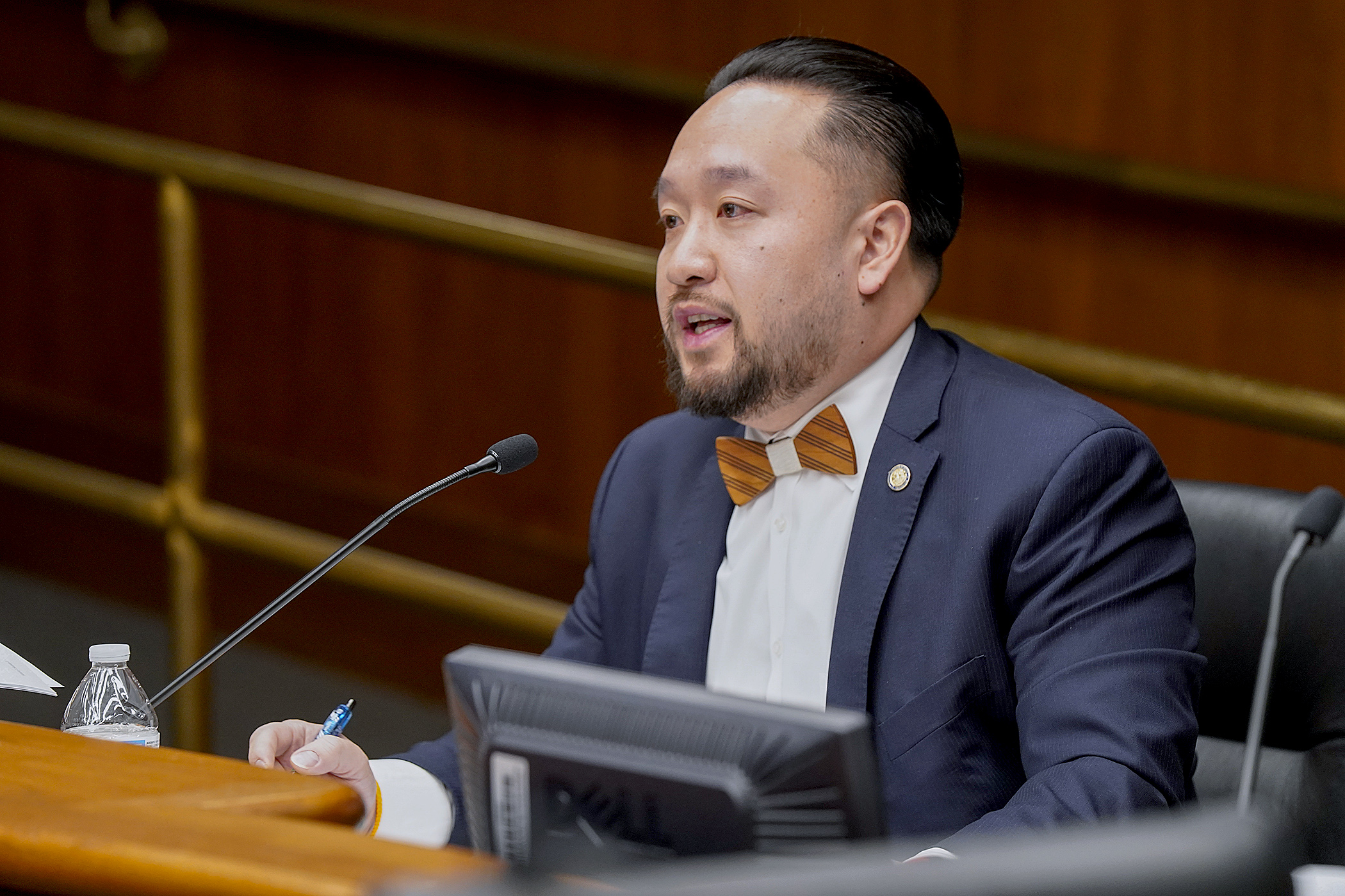Capital investment proposals topping $1 billion advance to final House committee stop

It’s time to set aside the notion of even-numbered years being bonding years, according to Rep. Nolan West (R-Blaine).
“Any year you can pass a bonding bill is a bonding year,” he said.
There’s a long way to go in a few short weeks before it’s known if 2024 will be bonding year like 2023 was, but efforts to pass a bonding bill moved forward Wednesday.
The House Capital Investment Committee approved HF5220, as amended — which would raise money through the sale of bonds — and HF5162, as amended, which would pay for projects using cash from the General Fund.
The bills, both sponsored by Rep. Fue Lee (DFL-Mpls), were approved on voice votes and referred to the House Ways and Means Committee.
The proposed legislation calls for $980 million in spending from the proceeds of bond sales and $38.7 million in General Fund spending for a variety of infrastructure projects including replacing high-priority bridges, improving accessibility of state buildings, fixing crumbling state prisons and building a new animal hospital at the Minnesota Zoo.
Funding for state agencies is specified in the bills. There is more than $300 million set aside for local projects that are yet to be determined.
[MORE: View the spreadsheet]
Policy provisions included in cash-only bill would help clarify expectations for entities seeking state dollars, including what is considered a nonstate match.
Additionally, those receiving a direct appropriation from the state would have to establish a replacement fund for “major rehabilitation, expansion, replacement, or preservation of the capital project once the project has reached its useful life,” per an amendment added Wednesday.
The final committee meeting of the year ended on a collegial note, including bipartisan praise for Lee and retiring Republican lead Rep. Dean Urdahl (R-Grove City), who was called “a legend” by DFL colleague Rep. Ned Carroll (DFL-Plymouth).
Committee members were encouraged to enlist support from fellow senators and representatives to find the three-fifths majority needed to pass the bonding bill. The appropriations from the cash bill only require majority approval.
“The stakes are too big, the projects too important, and the cost of doing nothing too expensive,” said Rep. Dan Wolgamott (DFL-St. Cloud).
Related Articles
Search Session Daily
Advanced Search OptionsPriority Dailies
Ways and Means Committee OKs House budget resolution
By Mike Cook Total net General Fund expenditures in the 2026-27 biennium will not exceed a hair less than $66.62 billion.
That is the budget resolution approved Tuesday by the House Ways...
Total net General Fund expenditures in the 2026-27 biennium will not exceed a hair less than $66.62 billion.
That is the budget resolution approved Tuesday by the House Ways...
Minnesota's budget outlook worsens in both near, long term
By Rob Hubbard It looks as if those calling for less state spending could get their wish, judging from Thursday’s release of the February 2025 Budget and Economic Forecast.
A state su...
It looks as if those calling for less state spending could get their wish, judging from Thursday’s release of the February 2025 Budget and Economic Forecast.
A state su...